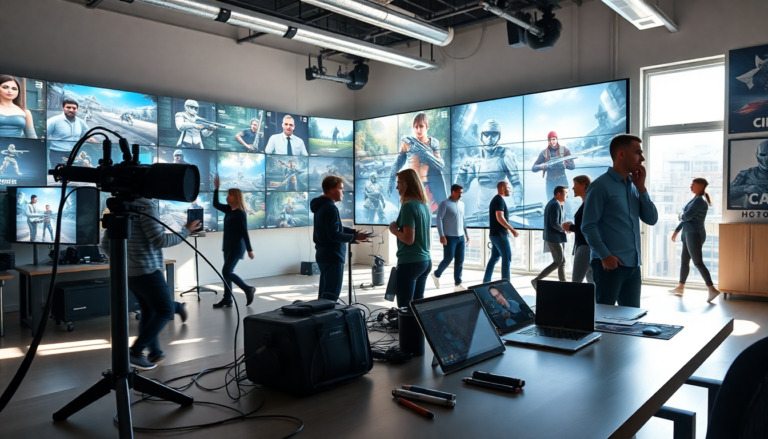Argomenti trattati
This week, the British Film Institute (BFI) issued a significant report highlighting the potential dangers artificial intelligence poses to the UK screen industry, particularly in gaming. The report categorizes AI advancements as a “direct threat” to the livelihoods of many involved in the sector. As technology evolves, so too does the conversation about how it affects those who create the characters and stories that players love.
The end of the US video game actors’ strike
In a notable turn of events, video game actors in the United States have concluded their long-standing strike after nearly a year of protests against the use of AI by game studios. Over 2,500 performers were unable to work on projects impacted by this strike while the Screen Actors Guild-American Federation of Television and Radio Artists (SAG-AFTRA) negotiated terms with various studios.
Following more than 11 months of discussions, a “tentative” agreement has finally been reached. Duncan Crabtree-Ireland, the national executive director of SAG-AFTRA, emphasized that the outcome is a victory of “patience and persistence,” creating essential AI regulations that protect performers’ jobs in this new era.
Details of the agreement
This agreement is particularly noteworthy as it includes provisions that safeguard the future of performers in the gaming industry. It introduces historic wage increases exceeding 24%, improved health and safety measures, and leading-edge AI clauses that mandate transparency, consent, and fair compensation for the use of digital replicas in video games. Such advancements are crucial as the industry increasingly relies on AI to enhance gameplay experiences.
International solidarity among actors
In the UK, there has been a wave of support for American actors from their British counterparts. Equity, the actors’ union in the UK, has voiced the need for a similar comprehensive agreement to protect local talents from the threats posed by AI. The BFI report has further added urgency to these discussions, emphasizing the risks of AI encroachment in creative sectors.
AI’s threat to voice actors
Experts warn that AI poses particular challenges for certain video game voice actors, especially those who create sound effects for various creatures or characters. George Osborn, a contributor to the Video Games Industry Memo, explained that generic sounds are the easiest for generative AI to replicate. This raises concerns about the future roles of human performers in the industry, as studios may increasingly lean towards AI-generated content.
The impact of the strike on game production
Despite the significant effects of the SAG-AFTRA strike, the timeline for video game releases remains robust. Unlike the film sector, where the strike led to delays for major productions, the gaming industry operates on longer development cycles. Any game already in production before September 2023 was exempt from the strike, meaning that while tensions ran high, the impact on release schedules has been minimal.
Nevertheless, the strike has heightened awareness of the challenges faced by voice actors, especially as studios appeared to hire international talent to fill gaps left by striking American workers. This situation has sparked an ongoing conversation about fair treatment and equitable practices in the gaming industry.
Looking ahead
The ongoing dialogue surrounding AI and its implications for the gaming world is crucial. As technology continues to evolve, it is essential for industry stakeholders to ensure that the rights and livelihoods of performers are protected. The recent agreements mark a critical step towards achieving this balance, but the journey is far from over.

